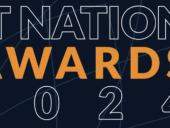
CRM
May the Features Be with You: Exploring the Top 5 Salesforce Features
In this week's top 5, we delve into Salesforce's top features that will have you harnessing the force of efficiency and productivity.
Top 5: Things AI might actually be good for
Top 5: Things AI might actually be good for
Length: 15:00 | January 29, 2019
It's easy to dismiss AI as a buzzword or just a marketing term, and in some cases it is. But here are five situations where AI can be helpful.

In this week's top 5, we delve into Salesforce's top features that will have you harnessing the force of efficiency and productivity.

In this Top 5 video, we explore the top 5 free CRM software for 2024, featuring HubSpot CRM, Zoho CRM, Freshsales, Capsule and EngageBay.

Improve business efficiency with Fireberry, an all-inclusive and customizable platform built to centralize your business operations.

Maximize your potential and optimize your processes with this comprehensive guide to the top features of Maximizer.

Security personnel, support staff, IT admins, MSP experts, bug hunters and more can apply for the peer-lead IT Nation Awards, sponsored by TechRepublic and CloudAlly.

This video serves as your comprehensive guide to understanding the strengths and unique offerings of top 5 data management platforms.

In this Top 5 video, we bring you the most exciting highlights from CES 2024, the world's leading consumer electronics show.

In this episode of Top 5, we dive deep into the exciting features, updates, and enhancements that Zoho People will offer in 2024.